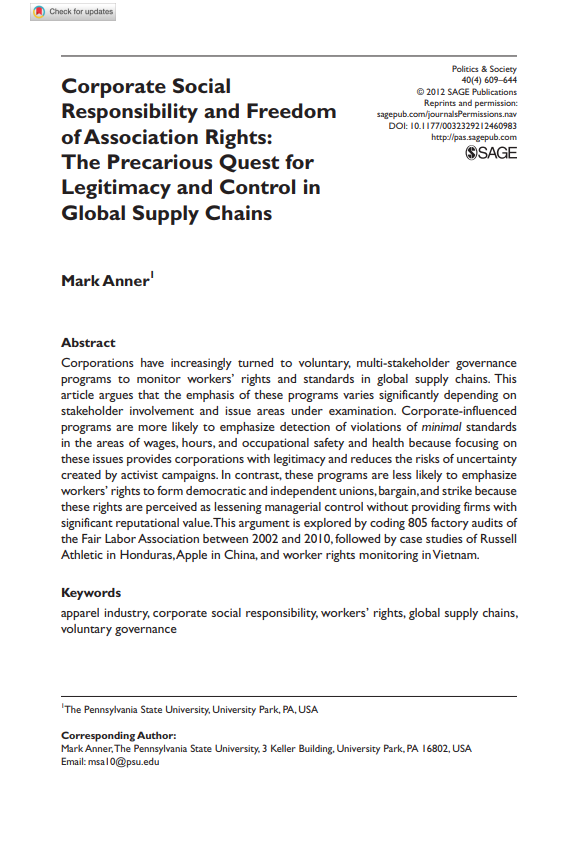Corporations have increasingly turned to voluntary, multi-stakeholder governance programs to monitor workers’ rights and standards in global supply chains. This article argues that the emphasis of these programs varies significantly depending on stakeholder involvement and issue areas under examination. Corporate-influenced programs are more likely to emphasize detection of violations of minimal standards in the areas of wages, hours, and occupational safety and health because focusing on these issues provides corporations with legitimacy and reduces the risks of uncertainty created by activist campaigns. In contrast, these programs are less likely to emphasize workers’ rights to form democratic and independent unions, bargain, and strike because these rights are perceived as lessening managerial control without providing firms with significant reputational value. This argument is explored by coding 805 factory audits of the Fair Labor Association between 2002 and 2010, followed by case studies of Russell Athletic in Honduras, Apple in China, and worker rights monitoring in Vietnam.

